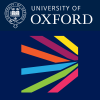Book at Lunchtime: Iconoclasm as Child's Play
Drawing on a range of sixteenth-century artifacts, artworks, and texts, as well as on ancient and modern theories of iconoclasm and of play, Iconoclasm As Child's Play argues that the desire to shape and interpret the playing of children is an important cultural force. Formerly holy objects may have been handed over with an intent to debase them, but play has a tendency to create new meanings and stories that take on a life of their own.
Joe Moshenska shows that this form of iconoclasm is not only a fascinating phenomenon in its own right; it has the potential to alter our understandings of the threshold between the religious and the secular, the forms and functions of play, and the nature of historical transformation and continuity.
Panel includes: Dr Joseph Moshenska is Associate Professor and Tutorial Fellow at University College. Joe grew up in Brighton, and as an undergraduate he read English at Sidney Sussex College, Cambridge. After graduating he went to Princeton, initially for a year as the Eliza Jane Procter Visiting Fellow, and stayed there to complete his PhD. From 2010 to 2018 he was a Fellow and Director of Studies in English at Trinity College, Cambridge. Joe joined the Oxford Faculty in 2018. In 2019 he was awarded a Philip Leverhulme Prize. Professor Lorna Hutson is the Merton Professor of English Literature and Director of the Centre for Early Modern Studies. She was educated in San Francisco, Edinburgh and Oxford and has repeated that pattern in her career, having taught at Berkeley, St Andrews and now Oxford. Professor Hutson is a Fellow of the British Academy and works on English Renaissance literature. She has written on usury and literature, on women’s writing and the representation of women, on poetics and forensic rhetoric and, most recently, on the geopolitics of England’s ‘insular imagining’ in the sixteenth century.” Professor Alexandra Walsham is Professor of Modern History at the University of Cambridge. She currently serves as Chair of the Faculty of History. She was an undergraduate and Masters student at the University of Melbourne before coming to Trinity College, Cambridge, for her PhD. After a Research Fellowship at Emmanuel College, she taught at the University of Exeter for fourteen years before returning to Cambridge in 2010. She was elected a Fellow of the British Academy in 2009 and of the Australian Academy of the Humanities in 2013. She was appointed a CBE for services to History in the Queen's Birthday Honours 2017. Professor Kenneth Gross is Distinguished Professor of English at the University of Rochester. His critical writing ranges from Renaissance literature, especially Shakespeare, to modern poetry, theater, and the visual arts. His books include The Dream of the Moving Statue, Shakespeare’s Noise, Shylock is Shakespeare, and most recently Puppet: An Essay on Uncanny Life, winner of the 2012 George Jean Nathan Award for Dramatic Criticism. He’s also the editor of John Hollander’s 1999 Clark Lectures at Cambridge, The Substance of Shadow: A Darkening Trope in Poetic History. Gross has held fellowships from the Guggenheim Foundation, the Bellagio Study Center, the Princeton Humanities Center, and the American Academy in Berlin. Gross has held fellowships from the Guggenheim Foundation, the Bellagio Study Center, the Princeton Humanities Center, and the American Academy in Berlin.
Professor Matthew Bevis is Professor of English Literature and Tutorial Fellow at Keble College. He is the author of The Art of Eloquence, Comedy: A Very Short Introduction, and, most recently, Wordsworth’s Fun (Chicago University Press, 2019). His recent essays have appeared in the London Review of Books, Harper's, Poetry, and The New York Review of Books. He’s currently working on Knowing Edward Lear for Oxford University Press, and a book On Wonder for Harvard University Press.




